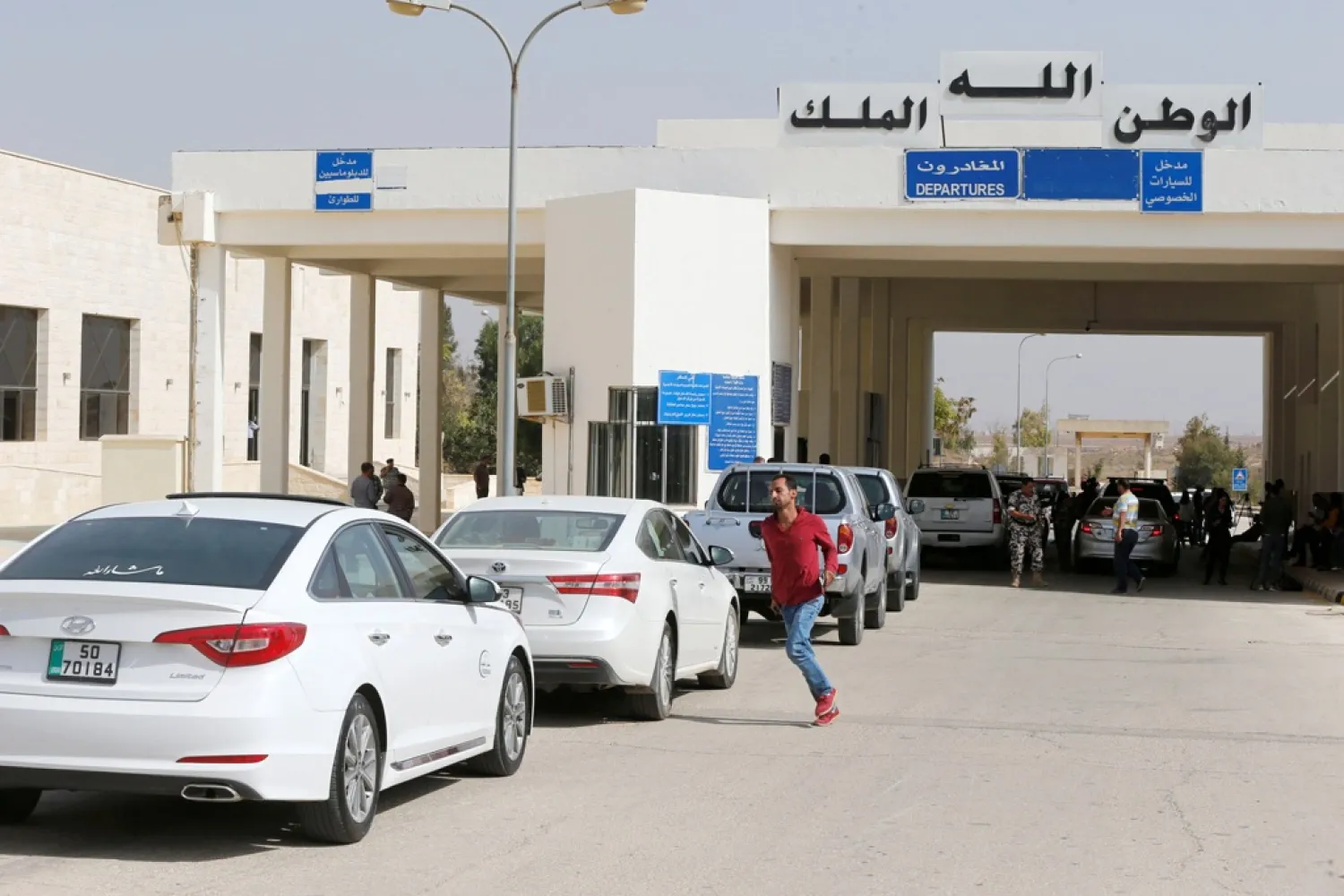The Jaber-Nassib border crossing between Jordan and Syria reopened to people and goods on Monday without any official ceremony by either of the two neighboring countries.
Located between the Jordanian town of Jaber in the province of al-Mafraq and the Syrian town of Nassib in the province of Daraa, the crossing had been controlled by militants for the past three years.
Governor of Mafraq, Yaser Al-Adwan, and a number of security directors inspected the workflow at the Jaber border crossing following its official re-opening.
The first day of the re-opening was limited to the movement of a number of citizens and investors, while cargo movement remained unchanged as clearance offices at the Jaber crossing were not operational and owners of these offices are working on re-licensing them.
Later, a Syrian economic delegation visited the crossing to discuss a number of issues between the two sides.
Meanwhile, a source from the United Nations High Commissioner for Human Rights told Asharq Al-Awsat on Monday: “We will only allow voluntary refugees to return to Syria and we will take measures to secure their return in collaboration with the Jordanian authorities.”
According to the source, there are still no numbers linked to refugees ready to come back home.
“When those numbers are available, we will announce them,” he said.
Later, the Jordanian government announced the terms of the agreement between Jordan and Syria to reopen the Jaber-Nassib border crossing.
The agreement said the working hours on both sides of the borders start from 8:00 am until 4:00 pm, and Jordanian citizens are allowed to leave for Syria by their vehicles or as ordinary passengers. Jordanian cargo is also allowed to leave for Syria in accordance with the agreement, the Petra news agency said.
Syrian citizens coming to Jordan will be allowed to enter the Kingdom after obtaining prior security approval. Syrian transit passengers are allowed to cross into Jordan provided they show proof of their residency permit or entry visa to the country they are coming from or going to.
Syrians are also allowed to bring in their own vehicles that do not carry a Syrian license plate, provided they present complete legal documents in accordance with the customs laws, whether they are coming to Jordan or just passing through its territory.
According to the agreement, drivers of Syrian public vehicles are also allowed to enter Jordan carrying passengers without prior approval and in accordance with the mechanism agreed upon between the two neighbors.









